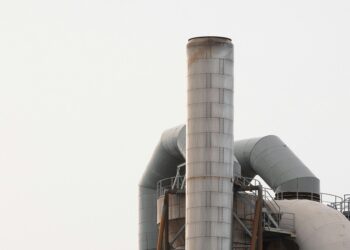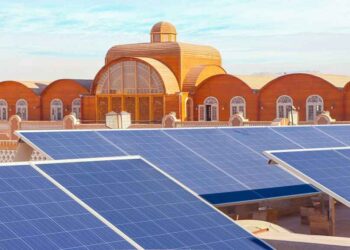South Hook’s liquefied natural gas (LNG) terminal is located in Milford Haven, south-west Wales, in the UK. It is Europe’s largest LNG terminal and has been built as part of the Qatargas II project.
The terminal is owned by a joint venture of Qatar Petroleum (67.5%), ExxonMobil (24.15%) and Total (8.35%). South Hook LNG Company was formed to develop and operate the terminal.
South Hook was built in two phases, phase one commenced operations in October 2009 and phase two in April 2010. It has a capacity of 15.6 million tons per annum (mtpa) of LNG. It can supply up to 21 billion cubic metres (bcm) of gas into the UK’s National Transmission System (NTS) annually.
The terminal was built to fulfil the UK’s long-term energy needs. It will help in boosting UK’s energy security as production in the North Sea declines.
Site and design of the Welsh LNG terminal
“The terminal is owned by a joint venture of Qatar Petroleum (67.5%), ExxonMobil (24.15%) and Total (8.35%).”
The terminal is located in Milford Haven, which is one of the world’s deepest natural harbours formed by the Pembroke Dock and Daugleddau Estuary. The location is ideally suited to deliver LNG to the UK market.
South Hook includes a 1km long jetty which enables LNG ships to berth. A ship unloading system enables LNG to be transferred into the five tanks at the terminal.
Each tank has a capacity of 155,000m³, a diameter of 95m and is 45m high. A regasification plant and gas send-out systems are also part of the terminal.
Construction and infrastructure of Europe’s largest LNG terminal
ExxonMobil announced construction of the terminal in April 2003. Planning permission was subsequently granted in March 2004. By the end of 2004, construction works for phase one of the terminal commenced at the site.
The terminal is built on a site earlier occupied by the Esso oil refinery, which was decommissioned in the late 1980s.
Phase one of the project included construction of a single berth, three storage tanks and eight submerged combustion vaporisers (SCVs). In the second phase, a second berth, two storage tanks and seven SCVs were built.
Construction of the storage tanks required 13,000m³ of concrete and 2,500t of reinforcement. The tanks were constructed using a technique called slipforming which saved six months of construction time.
The terminal’s jetty was originally built for the Esso refinery in the 1950s. It was refurbished to make it suitable to receive LNG carriers.
The old berthing and loading facilities were demolished and 800m of existing jetty structure was refurbished. New marine facilities were also constructed, which required 370 steel piles to be driven and 422 pieces of prefabricated concrete elements to be cast.
Recoverable gas reserves and technology at South Hook
South Hook is supplied with LNG from Qatar’s North Field which is estimated to contain 380 trillion cubic feet of recoverable reserves. The field is produced through 30 wells drilled from three platforms.
Produced gas is processed and liquefied by Trains 4 and 5 at Ras Laffan Industrial City. Processed LNG is then loaded onto state-of-the-art dedicated tankers and shipped to the South Hook terminal.
Yokogawa Europe provided its ICSS automation control system for the terminal. The system includes a distributed control system, emergency shutdown system, fire and gas system and the Centum CS 3000 and Prosafe-RS safety instrumentation system.
Contractors involved in the LNG project
Chicago Bridge & Iron Company (CB&I) was awarded a $725-750m engineering, procurement and construction contract (EPC) for phase one of the terminal in November 2004. A $325m EPC contract for phase two of the project was also won by CB&I in October 2005.
“The terminal was built to fulfil the UK’s energy needs. It will help in boosting UK’s energy security as production in the North Sea declines.”
CB&I subcontracted Taylor Woodrow Construction to provide the pre-stressed concrete outer containment tanks of the terminal. Bowercross Construction was responsible for construction of the containment tanks.
Herbosch Kiere-Besix joint venture was contracted to design and construct the marine facilities of the terminal.
The JV subcontracted Fugro Seacore for providing pile top drilling equipment for installing piles for the terminal.
Unit Birwelco carried out several engineering and construction activities for the terminal, including prefabrication and installation of steel pipework, erection of structural steelwork, manufacture and installation of a gas metering skid and prefabrication of tension bar assemblies for the storage tanks.
Svitzer Marine was contracted to provide towing services in February 2007.
In June 2010, AMEC was awarded a three-year services contract. AMEC will work along with Black and Veatch under the contract.
IBM and NTT entered into a five-year agreement with South Hook LNG in June 2011 to deliver cloud computing services for the terminal.

















































